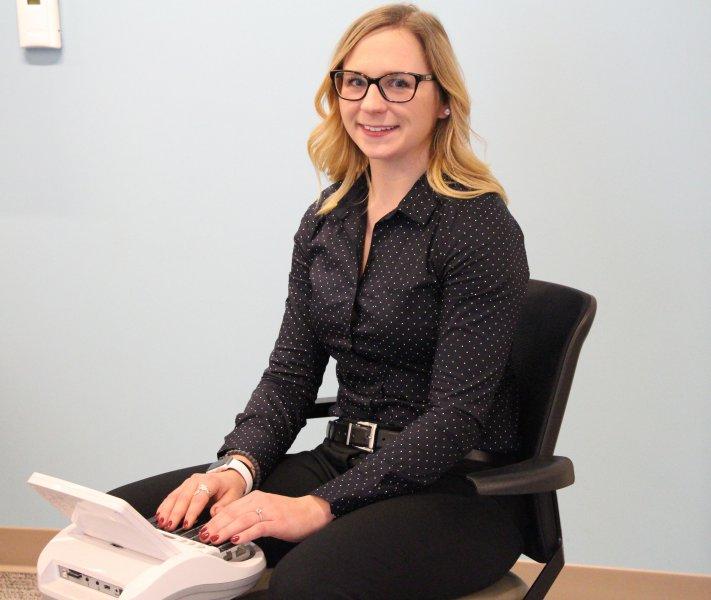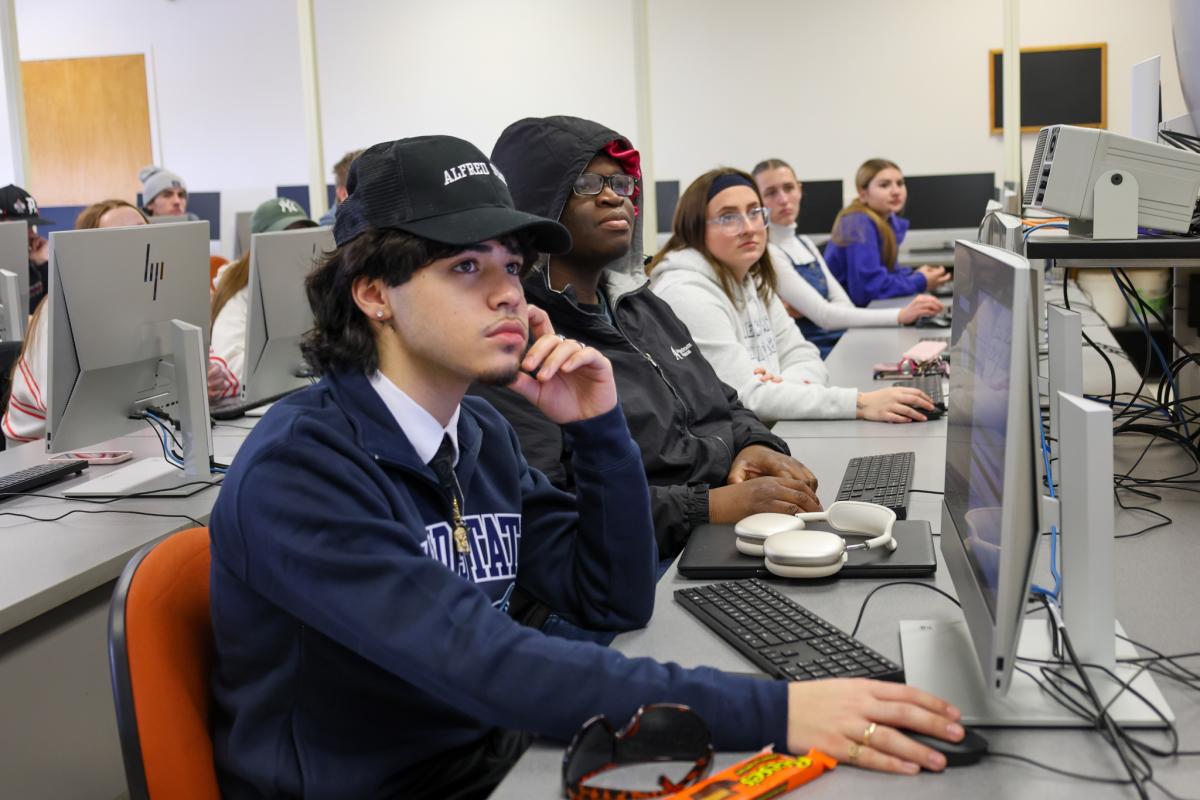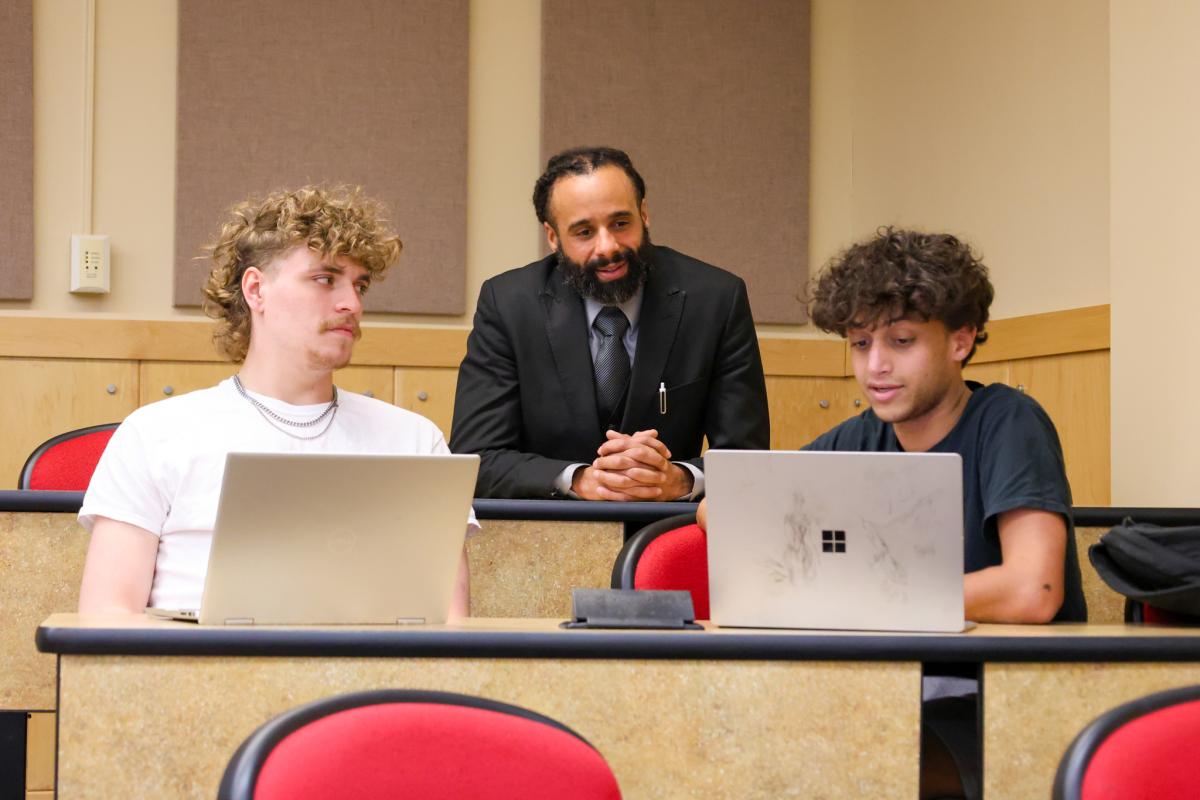Court and Realtime Reporting

PROGRAM DETAILS
Courses You May Take
Program Advantages
Embark on a career that's vital, exciting and rewarding with coast-to-coast opportunities at your fingertips. Court reporters can work in the legal community, provide communications access for people with hearing loss, be an independent contractor, or run their own reporting agency.
These programs, approved by the National Court Reporters Association, prepare students for careers as official, freelance, real time reporters, and captioners. One feature of the court and realtime reporting program is the development of high-speed recording skills to 225-plus words per minute through the use of real-time translation machine shorthand and computer aided transcription (CAT).
Hands-on experience pays off for graduates entering the working world. Read testimonials from some of our business department alumni. [https://www.alfredstate.edu/business-department-graduates]
Technical Standards
- Students must be able to tolerate the sitting position for prolonged periods of time (up to eight hours daily).
- Students must be able to meet industry standard speeds.
- Students must have sufficient manual dexterity to operate industry standard machinery.
- Students must possess adequate hearing to provide accurate verbatim transcripts.
Overview of Course and Practice Expectations/Requirements
What can I expect from court reporting school?
Court reporting is a non-traditional course of study in that it requires a performance-based outcome. The length of a program is largely determined by the individual, based on their progression through the speed levels. Court reporting schools prepare you for an entry-level position in the field; however, there will still be lots to learn on the job once you graduate. Some states require that you pass a state exam or that you hold certifications through the National Court Reporters Association. These requirements vary from state to state. Please be sure to check with your State Court Reporters Association to find out what your state’s requirements are to be able to be a working reporter or captioner there. Do they require certification? If yes, by the state or by an entity such as the NCRA? Do they require a degree in court reporting or will a certificate suffice? Do you need to freelance before you can be considered for an official position? The more information you have before you begin, the better your decisions will be as you progress through the program.
Instructional Development Plan (IDP)
Students’ work will be evaluated continuously and the professors will make recommendations of how the student can improve in order to progress through each level at the appropriate rate. Students should expect to incorporate this feedback to facilitate on-time completion of the program, although there are many variables that come into play that must also be considered.
What courses will I take?
- Realtime translation theory*
- Speedbuilding*
- English/grammar
- Law/legal terminology
- Computer aided transcription
- Anatomy/medical terminology
- Reporting procedures
- Technology
- Current Events
*Your realtime translation theory and speedbuilding courses will include instruction using a realtime translation theory, speed and accuracy development, dictation, read-back and analysis of steno notes, weekly transcription requirements.
Admissions Requirements
What else will increase my chances of success in the program?
Successful students have embraced the following Best Practices while in school:
- Practicing 18-25 hours per week (combined classroom/self-monitored)
- Being accountable for your practice hours
- Accessing all resources, consultations with instructors, all available means of dictation, job shadowing, peer review, mentoring, internships
- Participating in the development of your own Individual Development Plan with your school outlining speed-building path and goals
- Take responsibility for your success
- Seek feedback from instructors on daily/weekly basis
- Review all graded work so you can learn from your mistakes
- Join NCRA or your state association to surround yourself with positive encouragement
Court and Realtime Reporting has a Tool/Supplies Lending Program

In court and realtime reporting, you’ll build shorthand speed and accuracy, mastering advanced theory and phrasing. You’ll practice readback, transcription, and computer-based editing, while learning to translate multi-voice testimony. Training also covers captioning technology and transcript formatting, ensuring you’re prepared for professional roles in legal and realtime reporting.

FACILITIES
Exercitation dolore incididunt officia adipisicing culpa laboris labore sint. Consectetur Lorem et labore cillum ullamco in non ullamco commodo amet et. Ullamco dolore laborum incididunt ipsum proident dolore ad dolore consequat dolor.
Internship and Graduation
As you reach higher speeds, you will be involved in an internship program which includes sitting out on assignment with a working reporter, producing a 40-page transcript, logging your experiences in a journal and writing a summary. To graduate, you will need to pass three Testimony (Question/Answer) tests at 225 words per minute, three Jury Charge tests at 200 words per minute, and three straight matter tests at 180 words per minute, all with 95 percent accuracy or higher.
You can take a self-test (pdf) to determine your interest in court reporting. (Original self-test may be found at: McCormick, R.W., Blake, M.J. (2019). The Complete Court Reporter’s Handbook and Guide for Realtime Writers (6th ed.) Norco, CA: Professional Educational Distributors.)
TAKE THE NEXT STEP
You've seen our wide variety of majors at Alfred State, our great faculty who help you build your skills, and that you can do it at an incredible low cost. Now's the time to become an Alfred State Pioneer.




